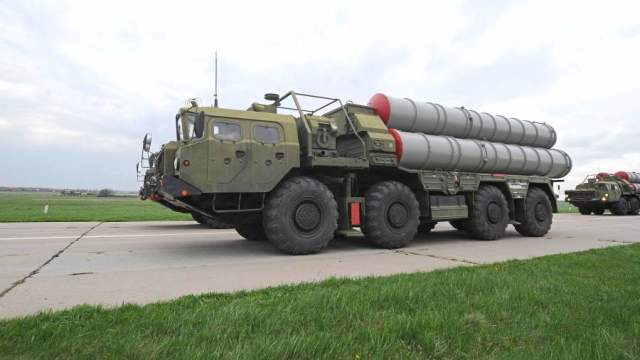There are no obstacles to the supply of S-400 anti-aircraft missile systems to Belarus, Dmitry Shugaev, head of the Federal Service for Military-Technical Cooperation (FSMTC), noted on September 3.
"Belarus is a strategic partner for us, we live in the same union state, and since the S-400 is still a system that is intended, among other things, for export, of course, it will be logical, if everything else is equal, to meet the needs of Belarus in this system," he told reporters on the sidelines of the Eastern Economic Forum (WEF).
According to him, at the moment there are no obstacles and restrictions.
On August 9, Belarusian President Alexander Lukashenko announced Minsk's desire to receive the Russian S-400 air defense system. According to him, the Belarusian side is conducting a dialogue with Russia on the acquisition of weapons.
Lukashenko also said that in case of danger of unleashing a new world war, the Russian Armed Forces (AF) will be deployed in Belarus.
At the same time, the president noted that Russia will not deploy its nuclear weapons in Belarus, since this makes no sense. According to the Belarusian leader, Moscow and Minsk have a tough military-political alliance.
Earlier, on June 24, the first deputy director of the Federal Service for Military-Technical Cooperation (FSMTC) of the Russian Federation, Andrey Boytsov, said that Russia is ready, at the request of Minsk, to consider the possibility of supplying S-400 systems and Pantsir-S1 anti-aircraft missile and gun systems to Belarus in the shortest possible time.
The S-400 Triumph anti-aircraft missile system can destroy modern air attack targets, including ballistic missiles. The detection range is up to 600 km, the radius of the cover zone is 400 km. The S-400 complex was bought from Russia by China, Turkey and India.

